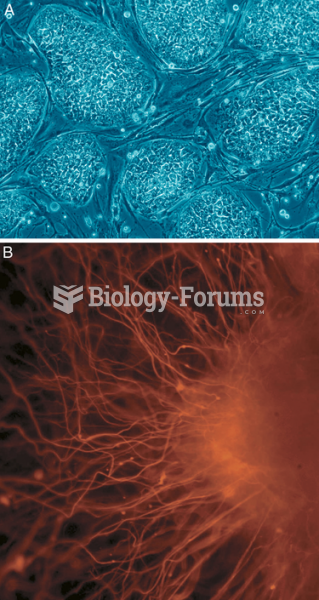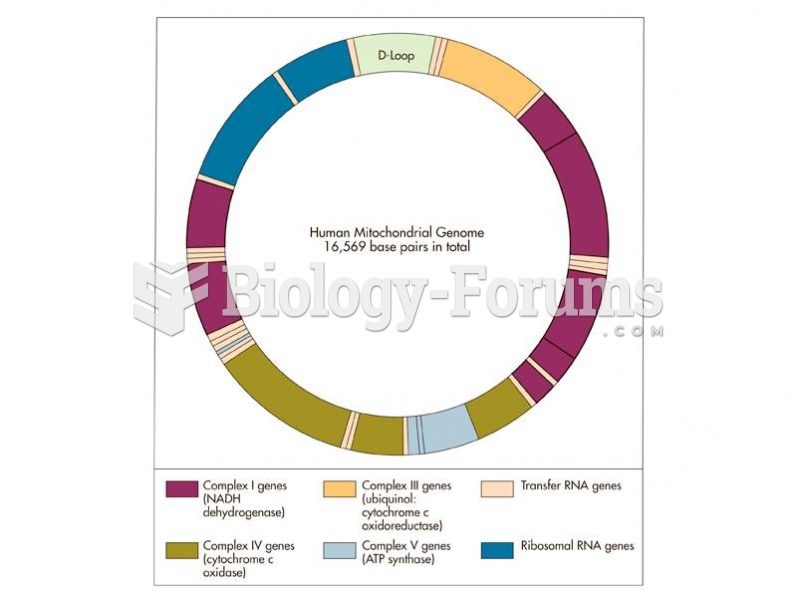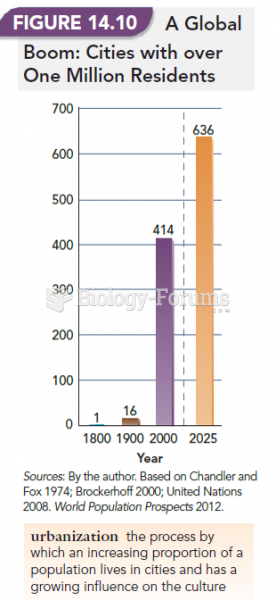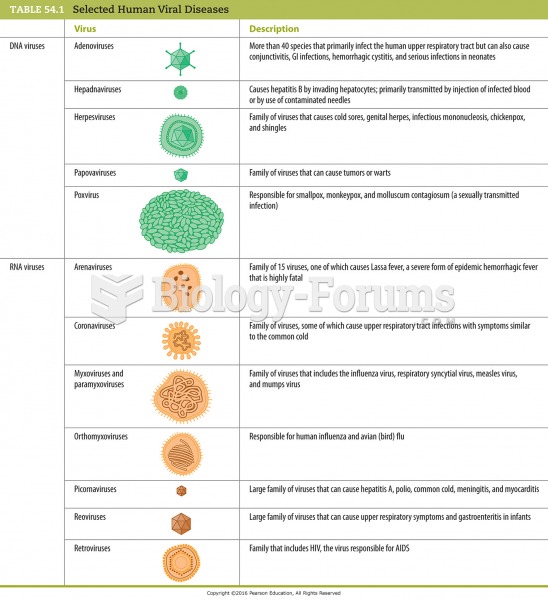|
|
|
Bacteria have flourished on the earth for over three billion years. They were the first life forms on the planet.
Acute bronchitis is an inflammation of the breathing tubes (bronchi), which causes increased mucus production and other changes. It is usually caused by bacteria or viruses, can be serious in people who have pulmonary or cardiac diseases, and can lead to pneumonia.
The ratio of hydrogen atoms to oxygen in water (H2O) is 2:1.
More than 2,500 barbiturates have been synthesized. At the height of their popularity, about 50 were marketed for human use.
The Centers for Disease Control and Prevention has released reports detailing the deaths of infants (younger than 1 year of age) who died after being given cold and cough medications. This underscores the importance of educating parents that children younger than 2 years of age should never be given over-the-counter cold and cough medications without consulting their physicians.







